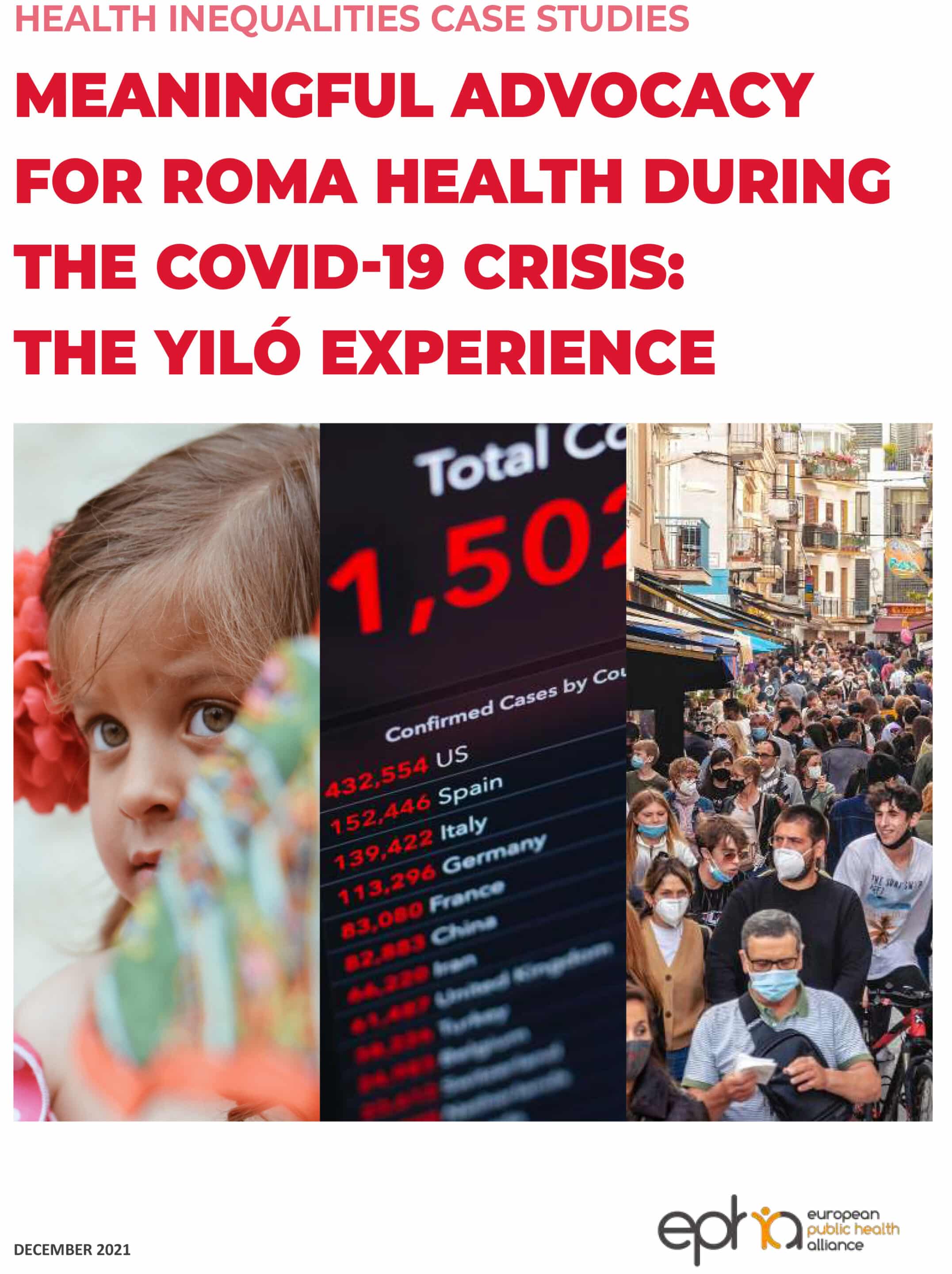The COVID-19 pandemic presents an unprecedented challenge to public health. The economic and social disruption caused by the pandemic is devastating with tens of millions of people at risk of falling into extreme poverty, enterprises facing existential threats, and our already fragile food system on the verge of collapsing. At the same time, public policies concerning health and economic recovery have ignored the specific experiences of minorities, particularly Roma families and communities during the pandemic.
A study issued under EPHA’s article series on health inequalities, offers an understanding of how the application of one-size-fits-all policies have negatively impacted the Roma population living under conditions of vulnerability during COVID-19 pandemic, providing analysis of qualitative data that shows the inequality of rights and access to resources this community faced during this global health crisis. The authors propose a set of recommendations based on experience, the best available evidence and the new EU Framework for Roma Equality, Inclusion and Participation:
- Frame the problems that Roma population experiences.
- Ensure the participation of Roma population in decision-making processes.
- Adopt measures with a gender approach.
- Organizational networks should be given the space to advocate for Roma population.
- Combat antigypsyism in the media, structures and policies.
Article series on health inequalities
EPHA has called on researchers and policy analysts to submit articles to help build knowledge about how the health of disadvantaged groups is affected by inequalities in areas such as employment, housing, education, healthcare, environment, and climate.

